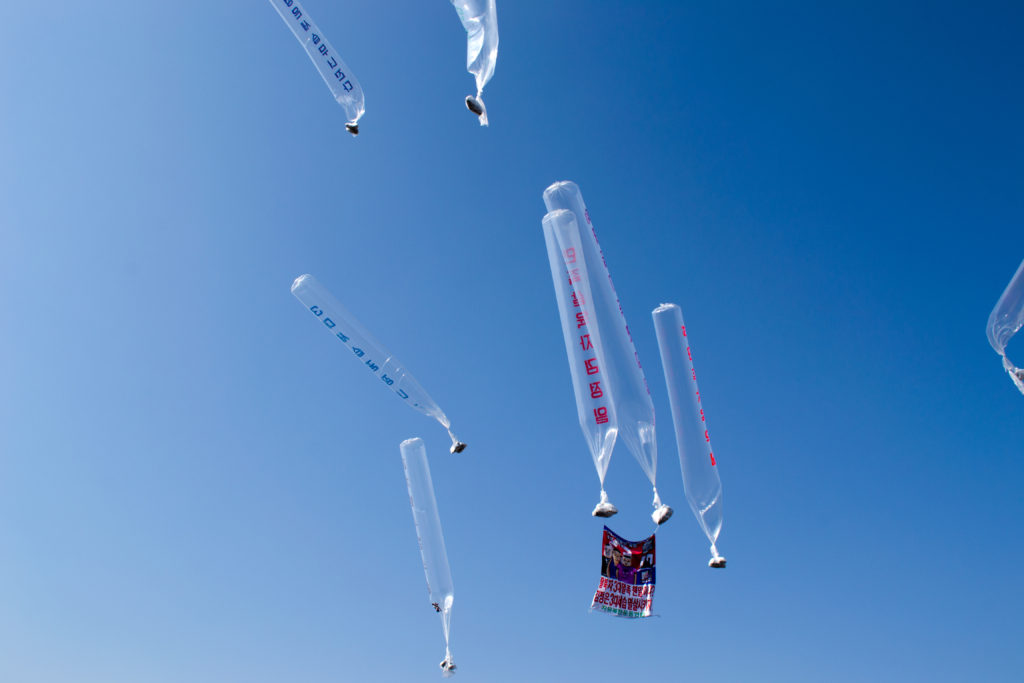The Peninsula
Inconsistencies in Civil Liberties Discourse

What Happened
- On the week of April 25, North Korean defector group, Fighters for a Free North Korea, launched balloons with anti-DPRK messages into North Korea.
- These balloons were launched in defiance of South Korea’s anti-leaflet bill, which was finalized by the National Assembly in March in concert with efforts to improve relations with Pyongyang.
- Seoul’s Metropolitan Police Agency is currently investigating the issue and conducted a raid on May 6 to see if the group’s actions were unlawful.
Implications: Both South Korean liberals and conservatives deploy the national security rationale to push through policies that constrain civil liberties. Political opponents of the Moon administration characterize the restrictions on leaflet balloons as an attack on freedom of speech. However, previous conservative administrations have also stopped activists from sending leaflets into North Korea. In 2012, the Lee Myung-bak administration prevented activists from sending leaflets ahead of South Korea’s presidential election. The Park Geun-hye administration also deployed the police to block leaflet balloon launches, including once in 2013 before a presidential visit to the United States. Both Lee and Park claimed that these measures would help prevent potential DPRK hostilities, which parallels the Moon administration’s assertion that prohibiting launches protects those living near the border.
Context: The recent failure to ratify the International Labor Organization (ILO) convention on forced labor illustrates the frequency with which political parties change their stance on civil liberty issues. President Moon had campaigned on the promise of ratifying the ILO conventions. However, the National Assembly rejected the provision banning forced labor as a punishment for political speech because it was inconsistent with the exiting National Security Law. Although the Moon administration has not enforced the National Security Law as stringently as previous administrations, advocacy for the ratification of the ILO convention was lackluster. Moreover, even though the National Security Law constrains people’s freedom of speech, there was little pushback against its retention from conservative lawmakers currently protesting the government’s restrictions on leaflet balloon launches.
This briefing comes from Korea View, a weekly newsletter published by the Korea Economic Institute. Korea View aims to cover developments that reveal trends on the Korean Peninsula but receive little attention in the United States. If you would like to sign up, please find the online form here.
Korea View was edited by Yong Kwon with the help of Melissa Cho and Alexandra Langford. Picture from flickr user Ken Millard
